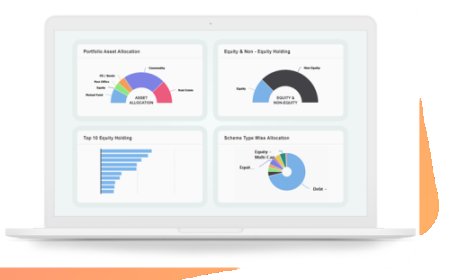Small Business Loans in Ontario: A Complete Guide to Funding Your Entrepreneurial Dreams
Whether you’re launching a new venture, purchasing equipment, increasing inventory, or seeking working capital, securing a small business loan ontario can provide the financial boost you need.
Starting or expanding a small business in Ontario often requires capital beyond personal savings. Whether youre launching a new venture, purchasing equipment, increasing inventory, or seeking working capital, securing a small business loan ontario can provide the financial boost you need. This comprehensive guide explores everything you need to know about small business loans in Ontariotypes of funding, qualification criteria, application process, benefits, risks, and tips to maximize your chances of approval.
What Are Small Business Loans in Ontario?
A small business loan in Ontario is a financial product designed to help entrepreneurs and small business owners access funds for various operational, expansion, or investment purposes. These loans can be obtained from banks, credit unions, government programs, or private lenders. The loans typically come with fixed or variable interest rates, repayment terms, and specific eligibility criteria.
Unlike personal loans, small business loans are tailored to support business activities, often requiring detailed business plans and financial statements to demonstrate creditworthiness and repayment capacity.
Why Do Small Businesses in Ontario Need Loans?
Small businesses often face challenges such as limited cash flow, high operational costs, or the need for growth capital. Common reasons for seeking a small business loan include:
- Start-up costs:Buying equipment, inventory, or leasing space.
- Expansion:Opening new locations or entering new markets.
- Working Capital:Covering day-to-day expenses, payroll, or receivables.
- Equipment Purchase:Upgrading machinery or technology.
- Inventory Financing:Stocking up for seasonal demand.
- Refinancing Debt:Consolidating existing debts to reduce interest costs.
Access to funding can be a critical factor in turning a small business idea into a profitable enterprise.
Types of Small Business Loans Available in Ontario
Ontario offers various financing options tailored to different needs and stages of business development:
1.Bank Loans
Traditional bank loans are often the primary option, offering competitive interest rates and flexible terms. They typically require strong credit history, collateral, and detailed business plans.
2.Government Grants and Loans
Ontario and federal governments provide programs to support small businesses:
- Ontario Small Business Support Program
Offers loans and grants to help with pandemic recovery, technology upgrades, or expansion. - Canada Small Business Financing Program (CSBFP)
Facilitates loans through participating lenders for equipment, real estate, or working capital. - Regional Development Agencies (e.g., FedDev Ontario)
Provide funding and support for innovative or regional businesses.
3.Credit Unions and Community Lenders
Locally focused financial institutions may offer more flexible terms and personalized service.
4.Alternative and Private Lenders
Online lenders, peer-to-peer lending platforms, and venture capitalists provide quick access, often with less stringent requirements but higher interest rates.
5.Merchant Cash Advances
A lump sum in exchange for a percentage of future salesuseful for cash flow gaps but typically more expensive.
6.Equipment Financing
Loans specifically for purchasing machinery or technology, often secured by the equipment itself.
Eligibility Criteria for Small Business Loans in Ontario
Lenders assess various factors to determine if your business qualifies:
- Business Plan:Clear outline of your business model, market, and growth strategy.
- Creditworthiness:Personal and business credit scores.
- Financial Statements:Profit and loss statements, balance sheets, cash flow statements.
- Time in Business:Usually 6 months to several years, depending on the lender.
- Revenue and Cash Flow:Demonstrating sufficient income to service debt.
- Collateral:Assets such as property, equipment, or inventory.
- Legal Status:Registered business with proper licenses and permits.
Different lenders have varying thresholds, so understanding specific criteria is vital.
The Application Process for Small Business Loans in Ontario
Securing a small business loan generally involves the following steps:
-
Assess Your Needs:
Determine the amount needed, purpose, and preferred repayment terms. -
Gather Documentation:
Prepare financial statements, business plans, tax returns, bank statements, and legal documents. -
Research Lenders:
Compare interest rates, repayment terms, eligibility, and customer reviews. -
Apply:
Submit applications online or in person, providing all required documentation. -
Approval and Review:
Lenders evaluate your creditworthiness, financial health, and business viability. -
Loan Offer and Agreement:
Review the terms carefully before signing. -
Disbursement:
Funds are transferred, and you can use them as approved.
Benefits of Small Business Loans in Ontario
-
Access to Capital:
Enables growth, operational stability, and competitiveness. -
Flexible Use:
Funds can be allocated to various needsinventory, equipment, marketing, etc. -
Build Credit History:
Responsible repayment can improve your business credit profile. -
Support During Growth Phases:
Helps bridge cash flow gaps during expansion or seasonal peaks.
Risks and Challenges
-
Debt Obligation:
Loans require repayment with interest, impacting cash flow. -
Collateral Risks:
Secured loans may put assets at risk if you default. -
Qualification Barriers:
New or small businesses might face hurdles due to limited credit history or financial data. -
Interest Costs:
Higher interest rates from alternative lenders can increase the total repayment amount. -
Market Risks:
External factors can affect your ability to generate revenue and service debt.
Proper planning and conservative borrowing are essential to mitigate these risks.
Tips to Improve Your Chances of Securing a Small Business Loan
-
Maintain Good Credit:
Pay bills on time and reduce personal and business debt. -
Prepare a Strong Business Plan:
Clearly articulate your business model, market, and financial projections. -
Keep Financial Records Organized:
Up-to-date and accurate financial statements boost credibility. -
Build Relationships with Lenders:
Establish trust through regular communication and transparency. -
Explore Multiple Options:
Dont rely solely on one lender; compare terms and rates. -
Consider Alternative Funding:
Use grants or crowdfunding alongside loans to diversify funding sources.
Bad Credit Mortgages?
Buying a home or refinancing in Ontario with bad credit can be challenging, but its often possible with specialized mortgage options. Many lenders understand that life eventssuch as job loss, medical issues, or past financial hardshipscan impact your credit score. This guide provides essential information on how to obtain a bad credit mortgage in Ontario, including what to expect, how to improve your chances, and tips for success.
What Are Bad Credit Mortgages?
A bad credit mortgage ontario is a home loan offered to borrowers whose credit scores fall below the ideal range (typically under 620-650). These mortgages are designed to accommodate individuals with blemished credit histories, past bankruptcies, or missed payments.
FAQs About Small Business Loans in Ontario
Q1: How much can I borrow through a small business loan in Ontario?
Loan amounts vary based on your needs and eligibility, ranging from a few thousand dollars to several million, especially through government programs.
Q2: What interest rates should I expect?
Interest rates depend on the lender, loan type, and your credit profile. Banks usually offer lower rates (around 4-8%), while alternative lenders may charge higher rates.
Q3: Do I need collateral for a small business loan?
Many traditional loans require collateral, such as property or equipment. Some government-backed loans or unsecured options may not require collateral.
Q4: How long does it take to get approved?
Approval times vary from a few days for online lenders to several weeks for traditional banks or government programs.
Q5: Can a new business qualify for a loan?
Yes, but it may be more challenging. Lenders prefer established businesses with proven cash flow, but some programs support startups.
Q6: Are there grants available for small businesses in Ontario?
Yes, several government grants support specific sectors, innovation, or regional development. Grants dont require repayment but have strict eligibility.
Q7: What is the repayment period typically like?
Loan terms range from 6 months to 10 years, depending on the purpose and lender.
Q8: What should I do if I cant repay my loan?
Communicate with your lender immediately; options include refinancing, restructuring payments, or seeking financial advice.
Final Thoughts
Securing a small business loan in Ontario can be a game-changer for entrepreneurs looking to start, sustain, or grow their operations. Success depends on understanding your financial needs, preparing a solid application, and choosing the right funding source. With careful planning and diligent research, you can access the capital needed to turn your business vision into reality.
Remember, always evaluate the terms carefully, consider your repayment capacity, and explore all available optionsincluding government programs and alternative lendersto find the best fit for your business goals. Your journey toward business success starts with the right financial supportso take the first step today!
































